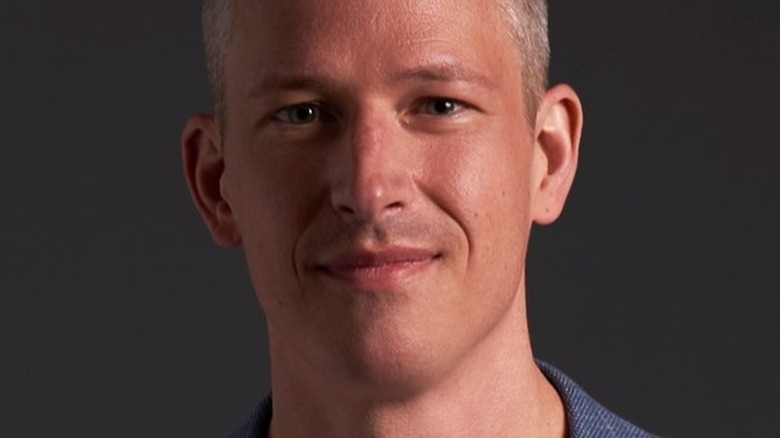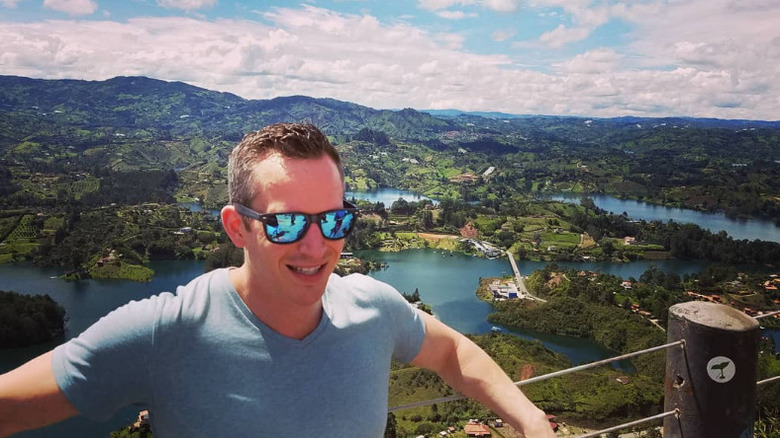Former Love Is Blind Contestant Slaps Show With Fiery Lawsuit
"Love Is Blind," the dating reality series around folks falling in love without seeing one another pre-proposal, was a big success for Netflix. Viewers flocked to the show, Emmy nominations were garnered and it's already coming back for a third season. While the premise of the show, like most dating shows, is unconventional, it has worked for some contestants. Some contestants left the show with their happily ever after and, even a few years later, are still together.
All that said, reality TV shows are never what they seem. We know that they are manipulated for good television or lead to some pretty dramatic downfalls. Some reality shows even became infamous for their treatment of contestants. A former "Bachelor" producer even came forward to Vanity Fair and said that alcohol has been used to push production agendas. "I definitely think on shows, they've had to cut back on how much alcohol they serve contestants because they've gotten in trouble..." the anonymous producer told the outlet.
But manipulative practices are still the name of the game. This is how "Love Is Blind" got slapped with a lawsuit from a former contestant. So, what happened?
The lawsuit alleges 'exploitative working conditions'
Being part of the second season of "Love Is Blind" was significant for Chicagoan Jeremy Hartwell. In an Instagram post from February 2022, he called it "one of the most intense and memorable events of my life." Despite such, Hartwell is now suing Netflix, Kinetic Content, and Delirium TV for "exploitative working conditions" on set. The lawsuit is a class action on behalf of all the show's contestants, as well as any other reality series created by the three companies in the last four years.
In the lawsuit obtained by Nicki Swift, Hartwell's attorney, Chantal Payton of Payton Employment Law, PC, of Los Angeles, alleges that the show "deprived [contestants] of food, water and sleep" and "plied them with booze." Further, the release says the show "cut off their access to personal contacts and most of the outside world," which "made cast members hungry for social connections." Payton also notes that the contestants would receive a $50,000 penalty if they left before filming was finished (cast members only made $1,000 a week on the show.)
"The combination of sleep deprivation, isolation, lack of food, and an excess of alcohol all either required, enabled or encouraged by defendants contributed to inhumane working conditions and altered mental state for the cast," according to the lawsuit. There are potentially more than 100 plaintiffs that could attach to the lawsuit.


